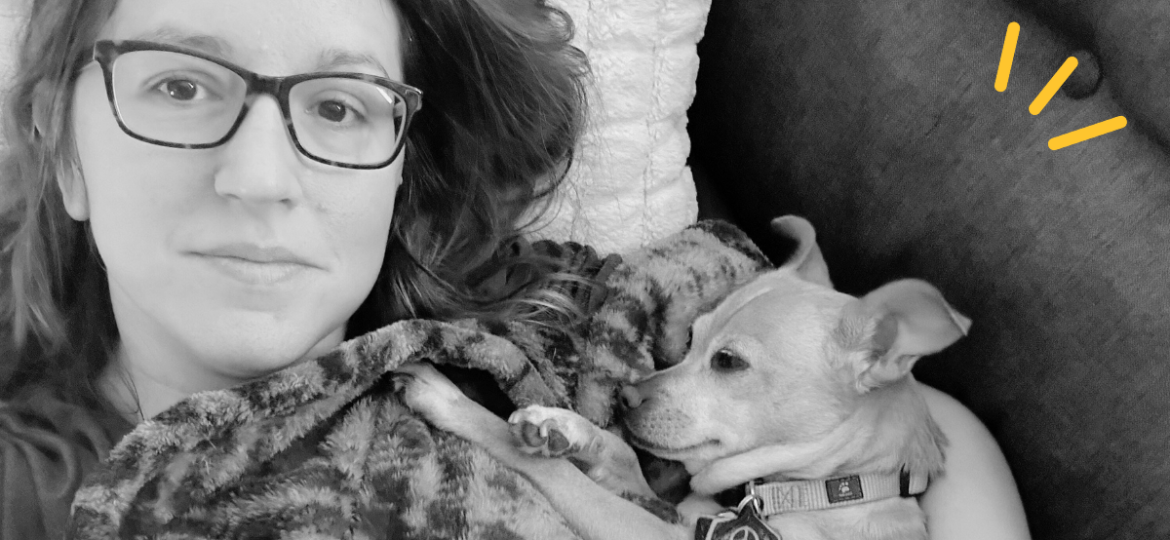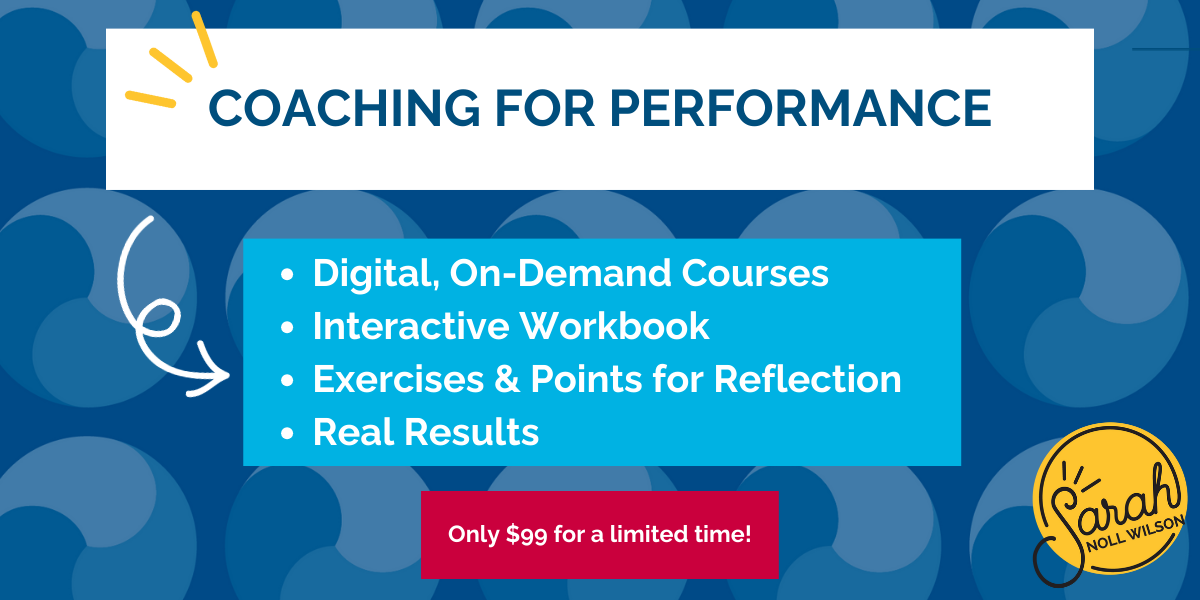
I’m not shy about having been on a mental health journey for some time now. In fact, it’s the opposite: I want to talk about it.
Why?
When I was first experiencing panic attacks and eventually diagnosed with panic disorder, I realized two things very quickly and very clearly. First, I wasn’t equipped for how to support myself through a mental health crisis. I didn’t have the language. I didn’t know the strategies. The things I was doing were actually making me feel worse. Second, the people around me didn’t have the skills to be able to show up for somebody in a mental health crisis. This was certainly not for a lack of compassion or effort, by the way . . . not in the least. Instead, it was a lack of awareness of the strategies and skills necessary for that very specific kind of support.
Through that journey, I realized how many people are suffering in the shadows in silence. It seems like every time I share about my panic disorder or ADHD, inevitably, someone comes up to me quietly afterwards (or sends me a message) to say some version of this: Thank you. I’m struggling too, or I know someone who is struggling. And I think there’s tremendous beauty in humans coming together like that, unsilenced.
I haven’t written about my recent diagnosis of OCD until today, but I have shared about it on a podcast with the authors of one of my favorite books: Needing to Know For Sure: A CBT-Based Guide to Overcoming Compulsive Checking and Reassurance Seeking. The episode is called A Conversation on Intrusive Thoughts, and I feel incredibly grateful to have gotten to speak with Dr. Sally Winston and Dr. Martin Seif. They are authors, mental health pioneers, and two of the leading mental health experts globally.
I wanted to talk with them for an important reason. Over a year ago, I started to experience what I can best describe as intrusive thoughts that weren’t once or twice a day, but what felt like hundreds every waking moment. The intrusive thoughts could be doubts, sometimes severe. They could be about things I had been sure of but suddenly felt a lot of distress about. I won’t go too deep into it, but perhaps the heaviest and scariest part was feeling like I didn’t know what was happening in my own mind. I had no clue it was OCD because, like many of us, I used to equate that condition with being incredibly clean or repeating behaviors or movements. I now know I had a limited understanding. It’s so much more than that.
When this was happening, I was still working. I was still present. I was still showing up for people. The shadow bit of it is that when you’re in this cycle, there’s some part of your brain that’s actively fighting itself simply to exist. In my journey to try and understand what the hell was happening to me, I came across the work of Dr. Winston and Dr. Seif, two expert psychologists who, for over 40 years, have dedicated their lives to helping people and therapists understand and treat anxiety and OCD.
I want to be really clear that I’ve read a lot of books on mental health challenges, and their books (yes, there are multiple!) changed me the most. Needing to Know For Sure, in particular, helped me understand my brain and gave me strategies that I hadn’t ever thought of before. It taught me to reexamine my ideas of OCD—what it is (a significant mental illness disorder) and what it isn’t (something people joke about having when they like things tidy or have a strong desire to control their environment). This book helped me realize that the source of so much stress and anxiety comes down to a discomfort with uncertainty.
When it comes specifically to OCD, we tend to view it through the lens of external compulsions and reassurance checking. Think of people who need to do a behavior multiple times or keep things in a strict order or else it causes incredible distress. Having a preference for something looking a certain way does not mean you have OCD, and saying so in a glib way could be dismissive. A major side of true OCD manifests internally—i.e., the compulsive checking or looking for reassurance in your thoughts and not just your environment. For me, this mainly manifests into concerns about my health. If I’m tired, for example, I will obsess over why I’m tired. Over and over and over and over. If I have a scratchy throat, I’ll obsess over whether or not I’m getting sick, swallowing incessantly.
I wanted to share that detail with you because I’ve found that for a lot of people, OCD goes unrecognized both by themselves and, quite frankly, their providers. Even therapists are largely trained in only identifying the external manifestations of OCD, not the internal manifestations of it. But both are very much valid. Because it goes undiagnosed, tens of thousands of people suffer and don’t know there are ways to reduce or remove their suffering. OCD is one of the top 10 most debilitating health issues. Not just mental health, overall health.
Why You Should Read This Book (Even if You Don’t Have Anxiety or OCD)

Needing to Know For Sure is for everyone. At its core, it discusses how the seed of all anxiety and stress is this need for certainty that we have as humans. This can show up in things we won’t ever have an answer for. We don’t know what’s going to happen day-to-day in our lives, in our relationships, in our work. We don’t know what external factors are around the corner, ready to throw off even the most well laid plans. As humans, we live in this world of uncertainty all the time, and there are moments when that uncertainty becomes unbearable. But the truth is that most of our distress about uncertainty is caused by the effort to fight it with reassurance.
I’ll let the experts say it better with a quote from Needing to Know for Sure:
“And so the problem with needing to know for sure is twofold. First, it’s an impossible goal. Second, the need for reassurance can become excessive, all consuming, and even torturous. It can stop you from living freely making both large and small choices from living without constant doubts. And your efforts don’t provide comfort when you’re looking for certainty because you’re trying for the wrong solution. Because when you’re stuck in doubt, greater certainty isn’t actually the answer.”
The book explores strategies for becoming more comfortable with uncertainty. It teaches us how we can become okay with saying, “I actually don’t know for sure how this conversation (or presentation, event, etc.) is going to go, and that’s okay. I’m going to do it anyway.”
While I was brought to this work through the lens of being in a pretty significant mental health crisis, the reality is we see this all the time on different levels. We see this in people who struggle with perfectionism, who delay their work because they have to be sure and certain that it’s going to not turn out to be a failure. We see this in companies that are unwilling to take risks because they want to be certain that they’re going to get the results they want. We see this in people who are unwilling to have the conversations they need to have. We see this in people who practice avoidance because they don’t want to get it wrong.
The reality, though? We’re never going to be certain.
For me, this book not only helped me better understand and have a different relationship with my anxiety and OCD, but truthfully it has helped me in my relationships and my work. I’m able to say, “actually, I don’t know for sure” and be capable of sitting in that discomfort.
It’s game-changing.
Want More?
To hear my conversation with Dr. Winston and Dr. Seif, please listen to, watch, or read the transcript of a A Conversation on Intrusive Thoughts.
Want to read the book? This month, in honor of Mental Health Awareness Month, we’re GIVING AWAY 10 FREE COPIES. Simply email hello@sarahnollwilson.com for your chance, and be sure to include your shipping address.
Finally, in the spirit of sharing, is there a time you’ve struggled with uncertainty/ How did that show up for you? If you found ways to be able to be present with it, what strategies helped you?
Let’s all get better together (and show up for each other along the way).
Sarah Noll Wilson is on a mission to help leaders build and rebuild teams. She aims to empower leaders to understand and honor the beautiful complexity of the humans they serve. Through her work as an Executive Coach, an in-demand Keynote Speaker, Researcher, Contributor to Harvard Business Review, and Bestselling Author of “Don’t Feed the Elephants”, Sarah helps leaders close the gap between what they intend to do and the actual impact they make. She hosts the podcast “Conversations on Conversations”, is certified in Co-Active Coaching and Conversational Intelligence, and is a frequent guest lecturer at universities. In addition to her work with organizations, Sarah is a passionate advocate for mental health.




Sarah, thank you for your continued openness, allowing us to learn and grow through your experience. YOU make the world a better place by showing up authentically and inviting us to do the same. Here’s to sitting with uncertainty in a game-changing way.
Great share, thanks for the links!